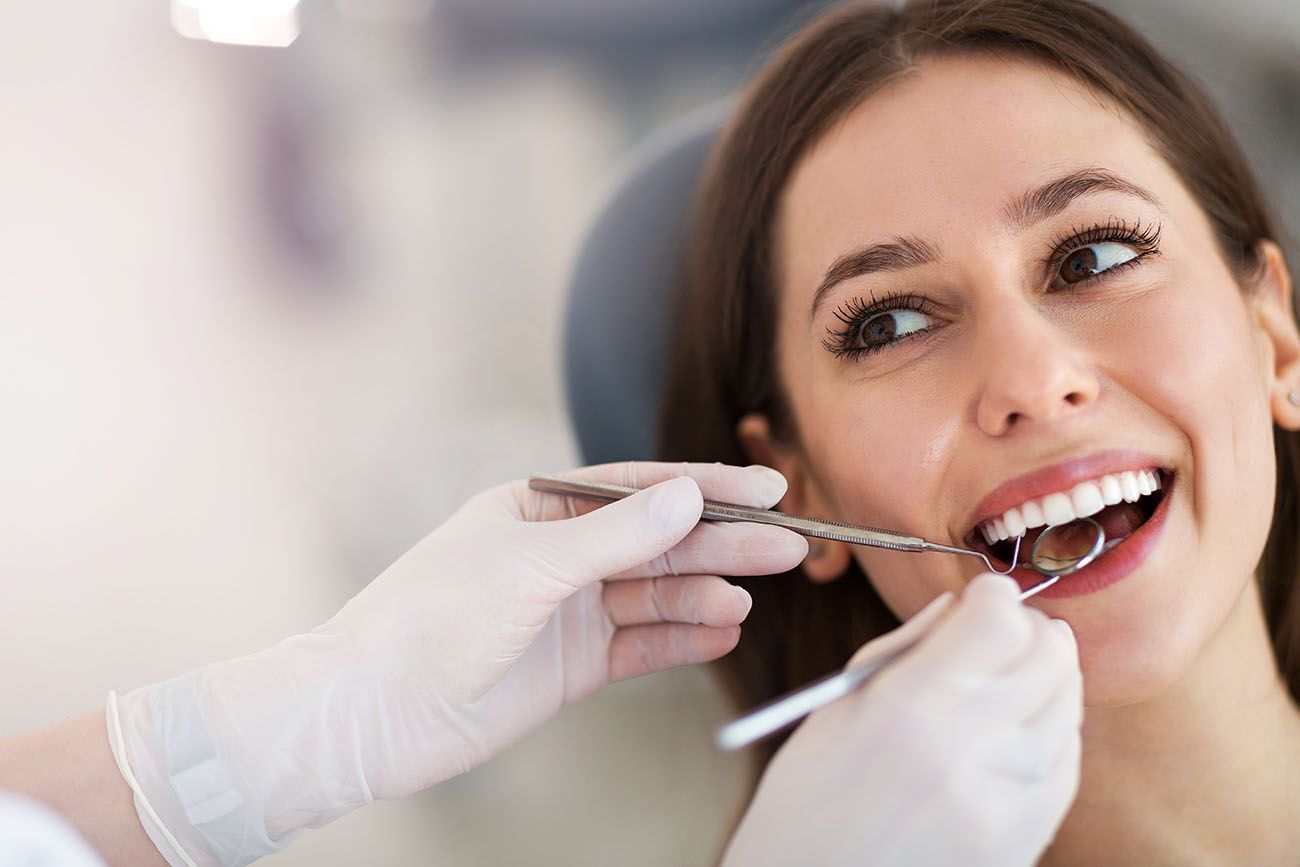As soon as we grow our first baby teeth, we begin visiting the dentist on a regular basis. When we reach adulthood, we might wonder if attending so many appointments at the dentist’s office is necessary. Even if you think it is a hassle, these routine dental check-ups play a major role in ensuring your smile looks and feels its best.
Without this dental attention, you could be in danger of major dental problems. Preserve your smile by not skipping these dentist appointments. Read on to learn more about the importance of preventative oral health care that you receive during your regular dentist appointments.

What Happens at a Routine Dental Check-Up?
During your regular dental check-up, a dentist begins the appointment by thoroughly cleaning your teeth. Though you practice oral hygiene at home, your toothbrush cannot reach some tricky spots in your mouth, like near your gumline. If plaque lingers, it can eat away at your dental structure and cause many oral health problems.
So your dentist will scrape away plaque and tartar to give you a fresh, clean, and healthy smile. They will also take the opportunity to evaluate your oral health with an exam. The dentist checks for early signs of issues like cavities or gum disease.
If any concerns exist, they can offer swift treatment before the condition worsens and causes lasting damage to your smile. Skipping this preventative dental care can mean you will require more intensive and expensive dental work down the road.
How Often Should I Schedule Dentist Appointments?
The average dental patient should schedule a routine dentist appointment every six months. This establishes the ideal window where a dentist can clean teeth before plaque creates problems and can diagnose a dental issue before it worsens significantly.
Some dental patients will need to see their dentists more frequently to get the preventative dental care they require for their unique smiles. For example, senior patients, those with a higher chance of forming tartar, and people with underlying health issues might need to attend check-ups every three or four months. A dentist will develop a personalized dental care plan for each of their patients since no smile is the same.
What Should I Do in a Dental Emergency?
Sometimes, even with diligent preventative dentistry, you can suffer an accident that may result in a dental problem before your next scheduled dentist appointment. You might sustain a blow to the mouth that breaks or knocks out a tooth, for instance. If these or any other changes occur in your oral health, do not hesitate to call your dentist.
If you wait until your next dental check-up, these concerns can worsen and lead to major dental damage. Contact your dentist about these dental emergencies. You do not have to suffer through discomfort in your smile.
Your dentist will likely ask you to come to an emergency dentist appointment to receive urgent care for your smile. Follow your dentist’s advice to see optimal restorative dental results.
